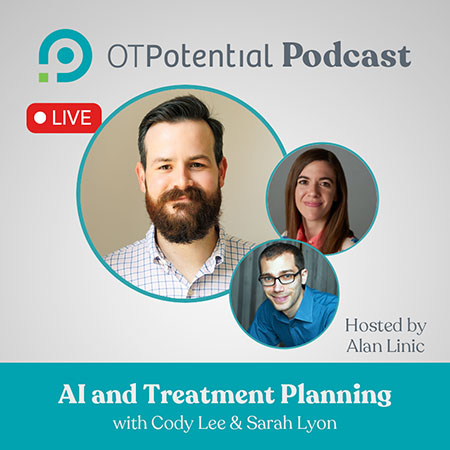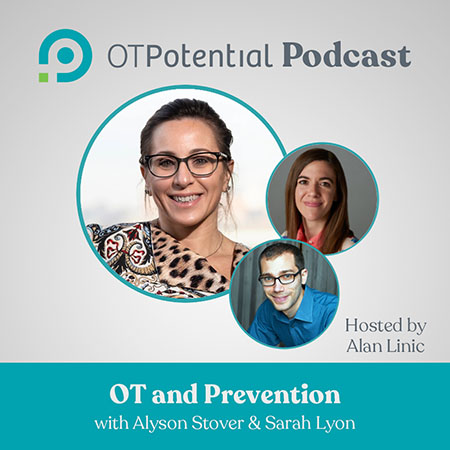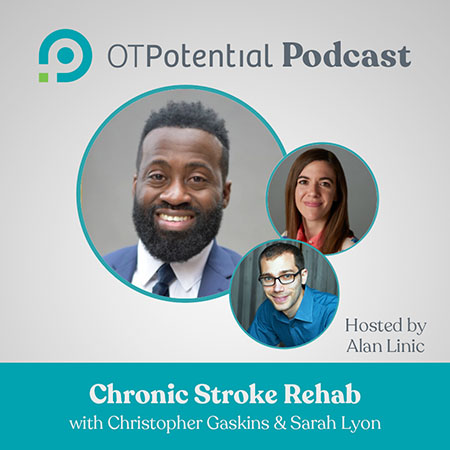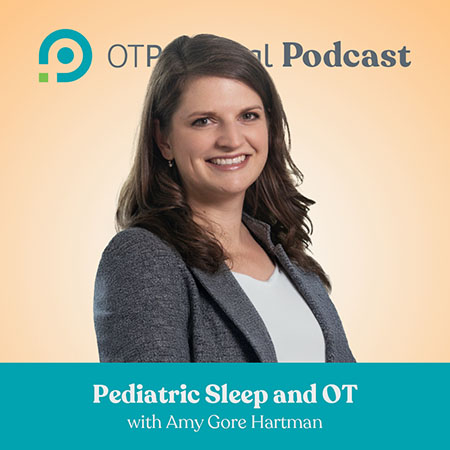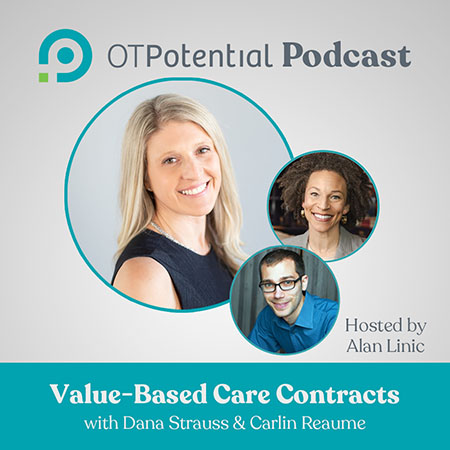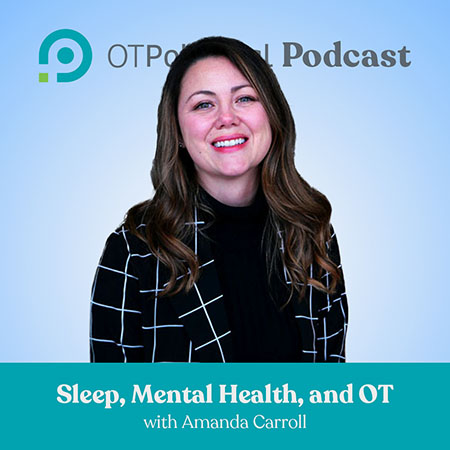Earn 1 hour of continuing education by joining OT Potential after taking this course.
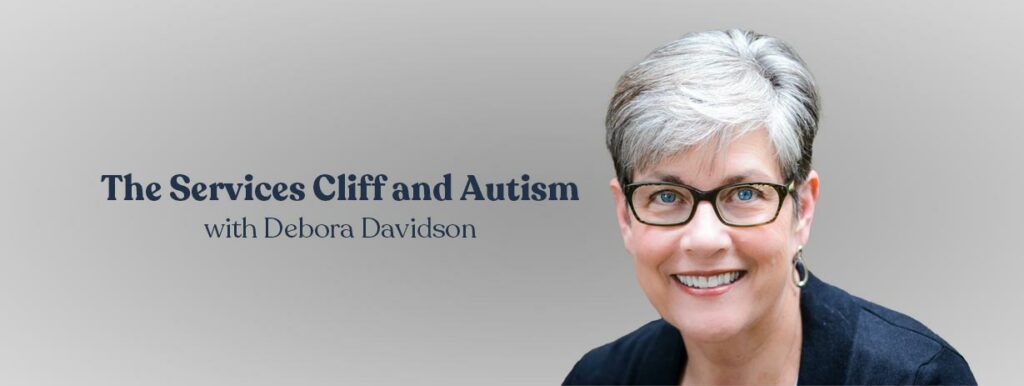
Listen: Apple | Spotify | Google
As autistic individuals transition from adolescence to adulthood, they encounter a new and unique set of challenges. Yet, at this critical time, the support available to them drops dramatically. This is known as the “services cliff.”
In this one-hour continuing education course, we’ll begin by looking at the journal article “Service Needs Across the Lifespan for Individuals with Autism.”
Then, to discuss how your occupational therapy skills can help bridge this service gap, we’ll invite Debora Davidson, PhD, OTR/L to discuss the research and her own experience providing transitional services in her private practice.
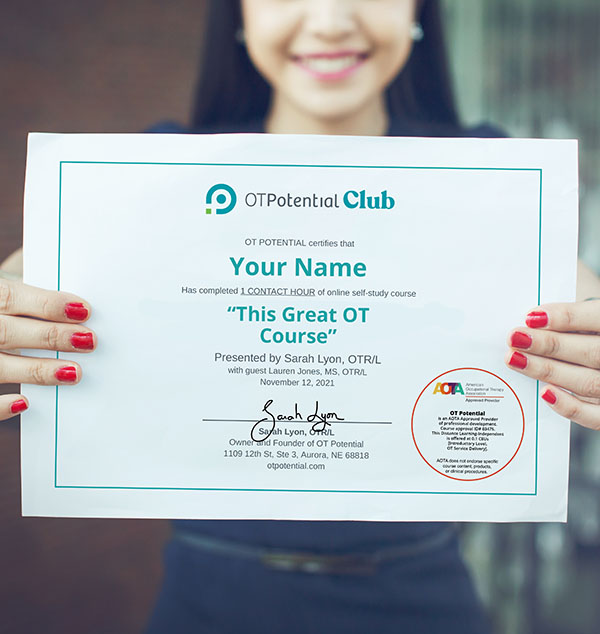
Earn 1 hour of continuing education
1. Listen to the podcast for free.
2. Sign up for the OT Potential Club.
3. Pass the quiz and download your certificate!
Primary Research Explored
When you log in, be sure to check out the OT Potential Club’s written breakdown of the following research article, then share your questions and thoughts with fellow practitioners.
Secondary Research
- Quality of life and its related factors for adults with autism spectrum disorder
- Characterization and Utilization of Preferred Interests: A Survey of Adults on the Autism Spectrum
Learning Objectives
- You will be able to describe the unique challenges that autistic individuals face as they transition from adolescence to adulthood.
- You will be able to identify the unmet service needs of autistic adults (based on the findings in the research).
Agenda
Intro (5 minutes)
Breakdown and analysis of journal article (10 minutes)
- What we know (and don’t know) about the service needs of autistic adults
- Why was this paper written?
- What were their methods?
- What were the results?
- Authors’ conclusion and recommendations
- Takeaways for OT practitioners
Discussion on practical implications for OTs (with guest Debora Davidson) (45 minutes)
- What were your initial impressions of the article?
- Did you observe the “services cliff” in your own work?
- In what ways do you think OTs could be supporting our autistic clients as they enter into and navigate adulthood?
- What business models do we need as OTs to provide those kinds of services?
- How do we navigate the high frequency of co-occuring conditions?
- We’ve been talking a lot in the Club about listening to our clients and supporting them in choosing the life that is meaningful to them. Do you have experience with this in your work?
- What future do you envision for OTs serving autistic clients (and other clients) as they transition into adulthood?
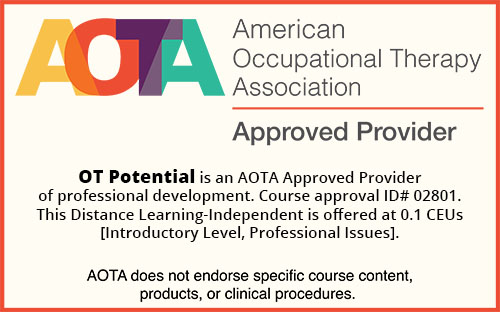
Instructional Methods/Registration/Special Needs Requests/Cancellation Policy
This course is an independent/self-study course delivered via podcast on iTunes, Spotify, Google Play & more.
If you need accommodations to take this course, please contact us and we will address your needs on an individual basis.
If we cancel a promoted course, event, live stream, or any other paid CEU offering prior to release, and you subscribe explicitly for said offering, you are eligible for a full refund if you did not complete and earn any other CEU quizzes or certificates during your subscription.
If a live webinar is cancelled that you signed up for, our system will automatically generate an email to you and if possible, we will inform you of the rescheduled date. Our most current webinar schedule will be found at: otpotential.com/live-ot-ceu-webinars.
Course Completion Requirements
In order to receive a certificate for this course, you must first participate in the podcast/webinar in its entirety. Then, you will need to take the quiz that will accompany the course and earn 75% or higher. If you pass, a certificate will be automatically generated and sent to your email. Quizzes for live (distance learning–interactive) webinars must be completed within 3 days of completing the webinar.
Target Audience/Educational Level
Our target audience is occupational therapy practitioners who are looking to learn about the service cliff in autism. The educational level is introductory.
Financial and Non-financial Disclosures
It is the policy of OT Potential to disclose any financial and non-financial interest the provider or instructor may have in a product or service mentioned during an activity. This is to ensure that the audience is made aware of any bias of the speaker.
We here at OT Potential have no financial stake in this topic. Our guest, Debora Davidson, has no financial interest in this topic to disclose.
Speakers
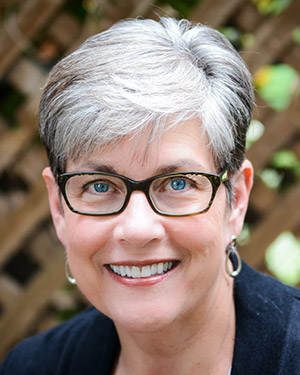
Debora Davidson, PhD, OTR/L
Debora has engaged in Occupational Therapy since 1979 as a practitioner and clinical supervisor, professor, researcher, writer/editor, and business owner. She earned a B.S. in Occupational Therapy from the University of Illinois in Champaign-Urbana, Master of Science from Boston University’s Sargent College, and PhD in Educational Studies from Saint Louis University.
Debora specializes in providing OT services to children, adolescents, and young adults with mental health disorders and/or intellectual developmental disabilities. She has worked in hospital psychiatry, community mental health, therapeutic schools, public schools, residential treatment centers, and home / community-based private practice. Read full bio.
Sarah Lyon, OTR/L
Sarah’s passion is helping fellow OT practitioners translate evidence into daily practice. Sarah earned her BA in religion from St. Olaf College, then earned her master’s degree in occupational therapy from New York University in 2011.
Since then, she’s worked in numerous facilities, including a critical access hospital, an acute trauma hospital, and a state inpatient psychiatric hospital. Sarah is the founder/owner of OT Potential. Read more about OT Potential here.
This course was designed to meet your continuing education requirements
We designed the courses in the Club to meet the requirements for “online” and “independent/self-study” courses. To verify the requirements from your specific state (within the US), check out our post, OT Continuing Education Requirements. If you are outside of the United States and have questions, please contact us.
We are proud to be an AOTA Approved Provider and to meet the requirements for your NBCOT renewal.
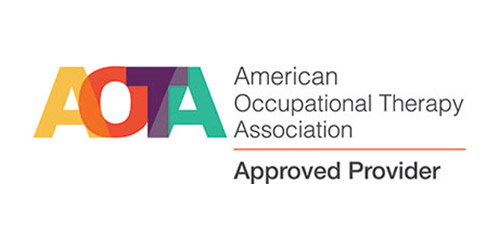
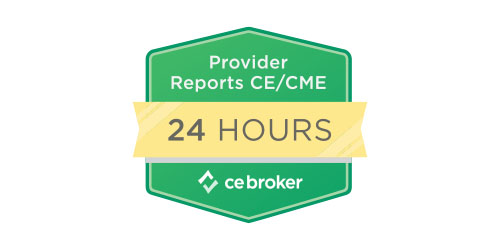
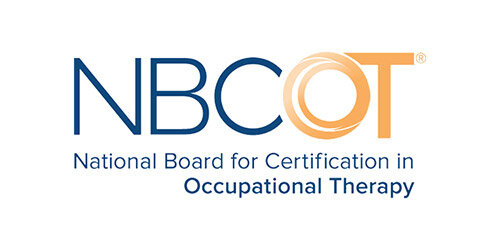
See our other OT courses!
The Services Cliff and Autism with Debora Davidson • OT Potential
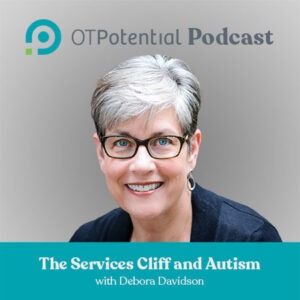
Today we’ll be covering “The Services Cliff and Autism.” We’ll look at new research and discuss it with Debora Davidson, PhD, OTR/L.
Course Provider: Organization
Course Provider Name: OT Potential
Course Provider URL: https://otpotential.com/
Course Mode: Online
Start Date: 2021-08-02
Duration: 01:00:00
Course Type: Subscription
4.93

